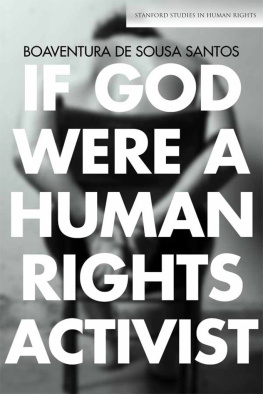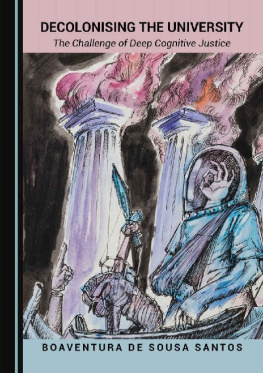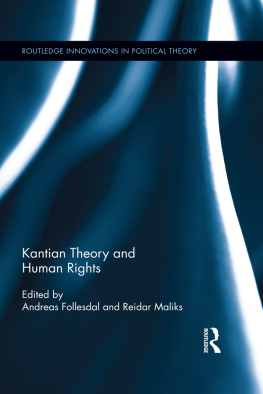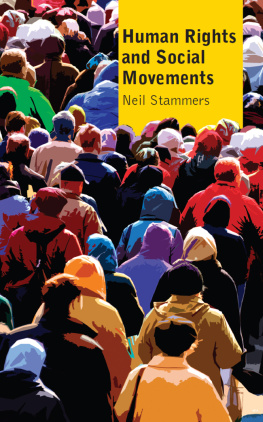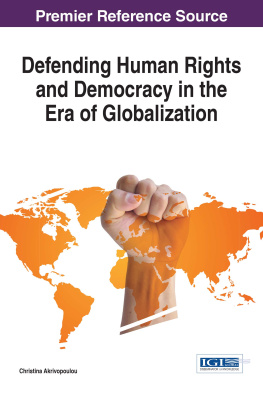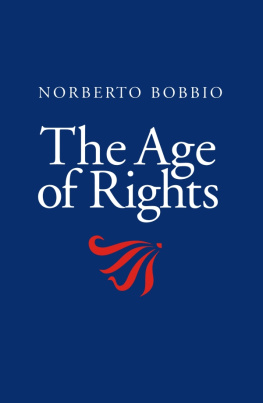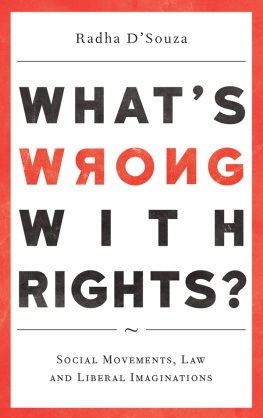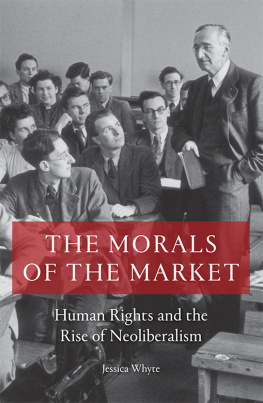Stanford University Press
Stanford, California
2015 by the Board of Trustees of the Leland Stanford Junior University.
All rights reserved.
No part of this book may be reproduced or transmitted in any form or by any means, electronic or mechanical, including photocopying and recording, or in any information storage or retrieval system without the prior written permission of Stanford University Press.
Printed in the United States of America on acid-free, archival-quality paper
Library of Congress Cataloging-in-Publication Data
Santos, Boaventura de Sousa, author.
If God were a human rights activist / Boaventura de Sousa Santos.
pages cm
Includes bibliographical references and index.
ISBN 978-0-8047-9326-1 (cloth : alk. paper)ISBN 978-0-8047-9500-5 (pbk. : alk. paper)
1. Human rightsReligious aspects. 2. Political theology. I. Title.
BL65.H78S26 2015
323.01dc23
2014038924
ISBN 978-0-8047-9503-6 (electronic)
Typeset by Bruce Lundquist in 10/14 Minion Pro
Foreword
BOAVENTURA DE SOUSA SANTOSSIf God Were a Human Rights Activist is a tour de force of the moral and intellectual imagination. In both the creativity of its several key lines of argument, and in the way historical, political, and cultural lines of evidence are parsed, interrogated, and, finally, synthesized in bold and even startling ways, the book breaks new ground and points the way toward the possibility of alternative practices anchored in what Santos calls relational grammars of human dignity.
In this wide-ranging critique and emergent reconstruction of human rights, Santos develops a mode of engagement that goes beyond mere inter-disciplinarity. Although his study is deeply rooted in the tradition of academic writing, the questions he takes up, and the framework he reveals for answering them, suggest an ecology that ranges beyond the walls of the academy, across the lines that divide the Global North from the Global South, and against centuries of oppression based on forms of what Santos describes as cognitive injustice. Paradoxically, one of these forms of cognitive injustice has been what he calls the conventional understanding and practice of human rights, particularly after the end of the Cold War. Although, as he argues, human rights orthodoxy has not taken hold everywhere with the same force or in the same way (one thinks of China and the United States as key outliers), nevertheless, the conventional account is shaping the contemporary world on its way to hegemony. (Conventional, as Santos uses it here, is meant to mark the moment in history in which human rights are, as he puts it, less than hegemonic and more than dominant in the often coercive role it plays in societies around the world.)
In Santoss analysis, conventional human rights shape consequential forms of action in the contemporary world on the basis of four illusions. For Santos, the critical task is to deconstruct these illusions so that the productive and even potentially emancipatory core of human rights can be repurposed as an epistemological and ethical resource within struggles of liberation and cognitive self-determination. First, according to Santos, the discourse of human rights suggests its own inevitability despite its actual historical contingency, even after the Universal Declaration of Human Rights was promulgated in 1948 as a fait accompli. If it is true, as the human rights scholar and anthropologist Richard A. Wilson has argued, that human rights have become the archetypal language of democratic transition (2001: 1), then for Santos it is important to acknowledge that this was the result of a string of idiosyncratic and nonessential events in history, politics, and the global economy; in other words, it could have been (and it might be in the future) otherwise. Second, the rise of human rights, again, particularly after the end of the Cold War (and, even more, after the end of the postCold War) has been accompanied by a wide-ranging elision of alternative visions of justice, particularly those associated with religious and nationalist ideologies. Nevertheless, if human rights have become dominant, Santos argues, this position should not be taken as a reflection of its inherent superiority. Third, like other universalisms in history, human rights are infused with an abstractness that obscures all of the important contexts that make it meaningful, concrete, and contradictory in actual social practice. And finally, and perhaps most importantly, Santos draws our attention to the illusion that conventional human rights are monolithic when in fact even dominant understandings and practices of human rights contain a diversity of conceptual emphasis, historical emergence, and cultural resonance.
For Santos, the empirical fact of human rights pluralism holds the key to the synthesis he develops in If God Were a Human Rights Activist. It allows him to use a practical and grounded hermeneutics to reveal the ways in which a more heterodox, that is, actual, account of human rights shares overlapping claims about human dignity with important strains of religious doctrine. As he argues, the hermeneutic engagement with dominant contemporary world religionswhich represent, for Santos, the clearest alternatives to human rightsshows them to be a surprising potential source of radical energy toward counterhegemonic human rights struggles.
At a moment in history in which, as he puts it, the most appalling social injustices and unjust human suffering no longer seem to generate... moral indignation, what is urgently needed is the willingness to subject our most hallowed grammars of human dignity to careful and creative scrutiny, for, as Santos convincingly shows us, these have more often than not often failed to translate into enduring practices of resistance for the worlds most vulnerable and marginalized populations. If God Were a Human Rights Activist is precisely such an urgent and necessary reappraisal.
Series Editor Mark Goodale
Preface
WE LIVE IN A TIME dominated by the power of the idea of individual autonomy, an autonomy that is to be exercised in a planetary marketplace constituted by a myriad of local, national, and global markets in which potentially all dimensions of individual and social life are traded according to their price-tagged value. According to this idea, society consists of supposedly self-made individuals whose life chances depend almost entirely on themselves, for better or for worse. These life chances are determined by life choices to be exercised through infinite options of exit (to use Albert Hirschmans well-known concept) within the planetary marketplace. The only unavailable option is the exit from the planetary marketplace. This idea is an ideology to the extent that it underwrites, manifests, and reinforces the dominant power relations in our societies. It operates as a kind of normative apolitics: normative because people are asked, if not forced, to be autonomousonly to be utterly abandoned if their failures are seen as the result of ineptitude in the exercise of their autonomy; apolitical because the immense power of this idea consists in promoting an idea of power as immensely fragmented, as disseminated in a virtually infinite web of interactions among individuals competing for scarce resources and rewards in the marketplace. Individual autonomy is thus understood as personal engagement with a ready-made, unchangeable world. The asocial or even antisocial being thus constituted is the

